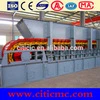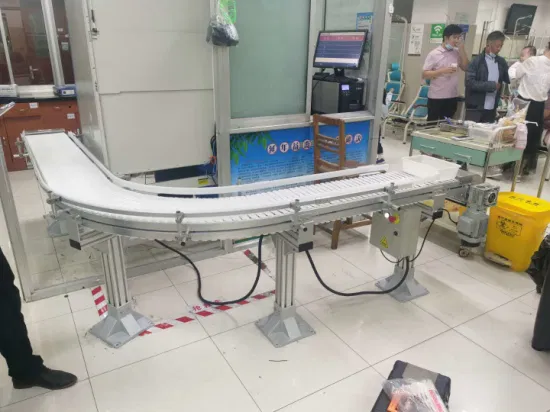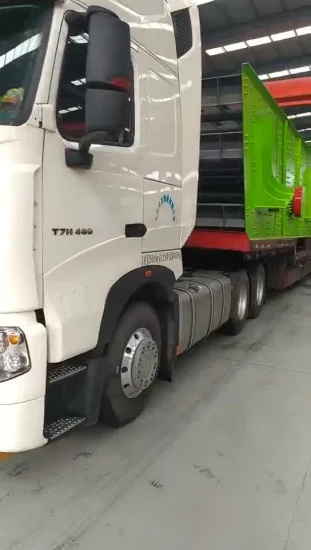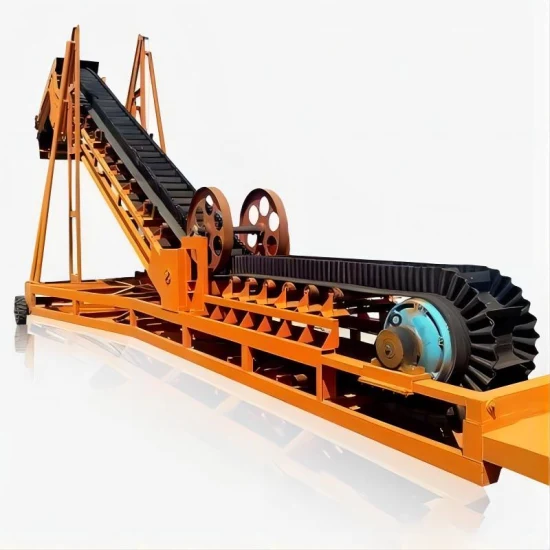
Flange Belt, Large Angle Conveyor,
Basic Info.
| Condition | New |
| Adjustable or Not | Adjustable |
| Can Be Customized | Customizable |
| Transport Package | Sea Transport |
| Specification | 100cm*100cm |
| Trademark | zhongang |
| Origin | Chain |
| HS Code | 8428320000 |
| Production Capacity | 50 Machine One Year |
Product Description
Product Description1. This series of products is a continuous conveying equipment for bulk materials for general use, but it uses a conveyor belt with wavy guard and transverse partition. Therefore, it is especially suitable for large Angle conveying.2. This series of products can be widely used in metallurgy, electric power, coal, building materials, chemical, light industry, grain, port, shipping and other industries, in the working environment of -25ºC - +40ºC range, conveying bulk proportion of 0.5-2.5T/m³ of all kinds of bulk materials.3.For the conveying of materials with special requirements, such as: high temperature, acid, alkaline, oil substances or organic solvents and other components of the material, need to use a special side conveyor belt.4. The transport Angle of any Angle in the range of 0º to 90º, the maximum conveying material particle size is 400mm.
Technical parameter
Bandwidth--B Rib height--H Tape speed--V Dip Angle--β Maximum throughput--Q Power--N
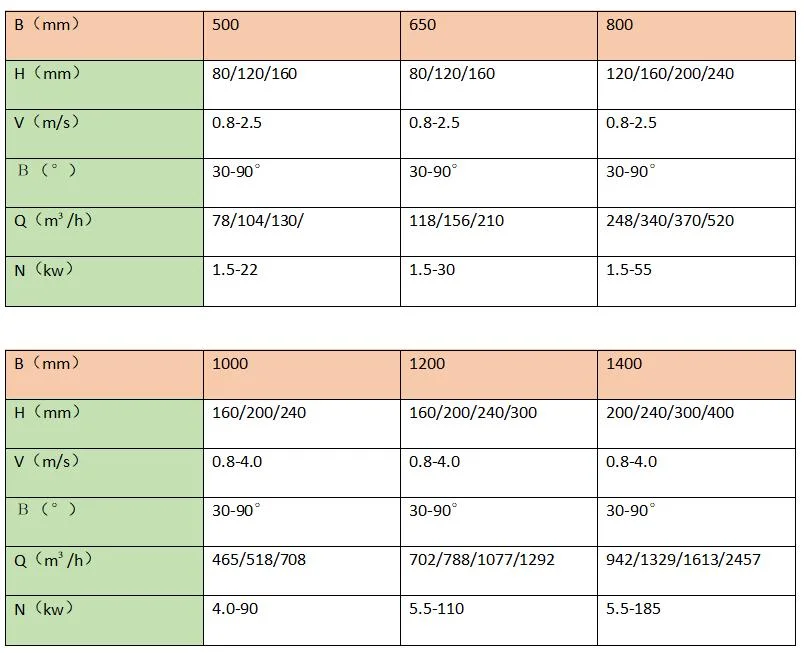
In order to obtain better receiving and discharging conditions, the machine is recommended to adopt the "S" layout type, that is, there is an upper horizontal section, a lower horizontal section and a discharge section. The material is received in the lower horizontal section and discharged in the upper horizontal section. The upper horizontal section and the inclined section are connected by a convex arc frame. The concave arc frame is connected between the launching section and the inclined section in order to realize the smooth transition of the conveyor belt with wavy rib.See Figure 1-2 "S" layout with the equipment conveying Angle <90º. There are various layout types of inclined section, which can be installed on inclined section buildings with legs (corridor structure type); When there is no corridor, the large-span frame type can be used; A simple basic channel type can also be used. And can be arranged according to the need for sealing cover or rain cover1- Tension device 2- Tail frame 3- Reverse the drum 4- Guide chute 5- Cushion roller 6- Reverse pressure wheel 7- Empty section cleaner 8- Concave arc frame 9- Reverse the roller10- Tape 11- Vertical roll 12- Middle frame 13- Legs 14- Middle frame 15- Top roller 16- Belt roller 17- Convex arc roller 18- Convex arc frame 19- Slap the cleaner 20- Head brace 21- Drive drum (and drive) 22- Head guard 23- Head funnel
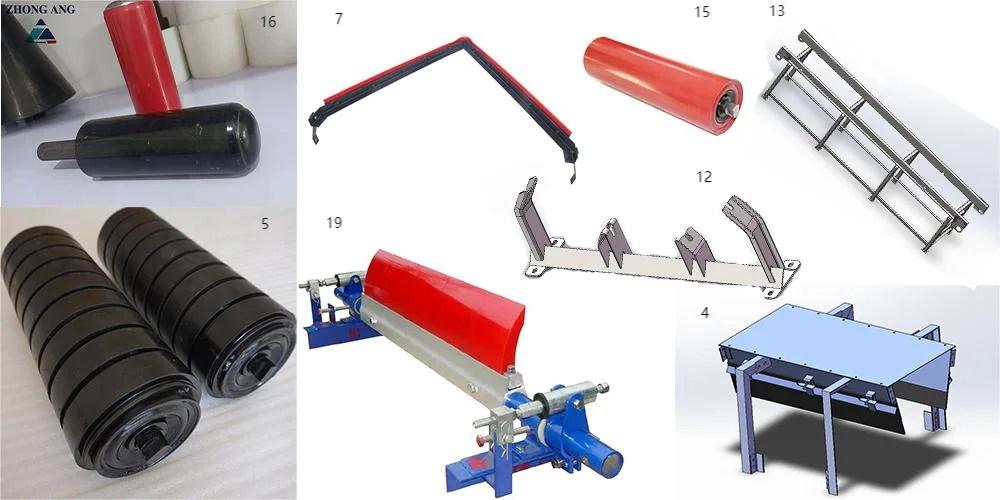

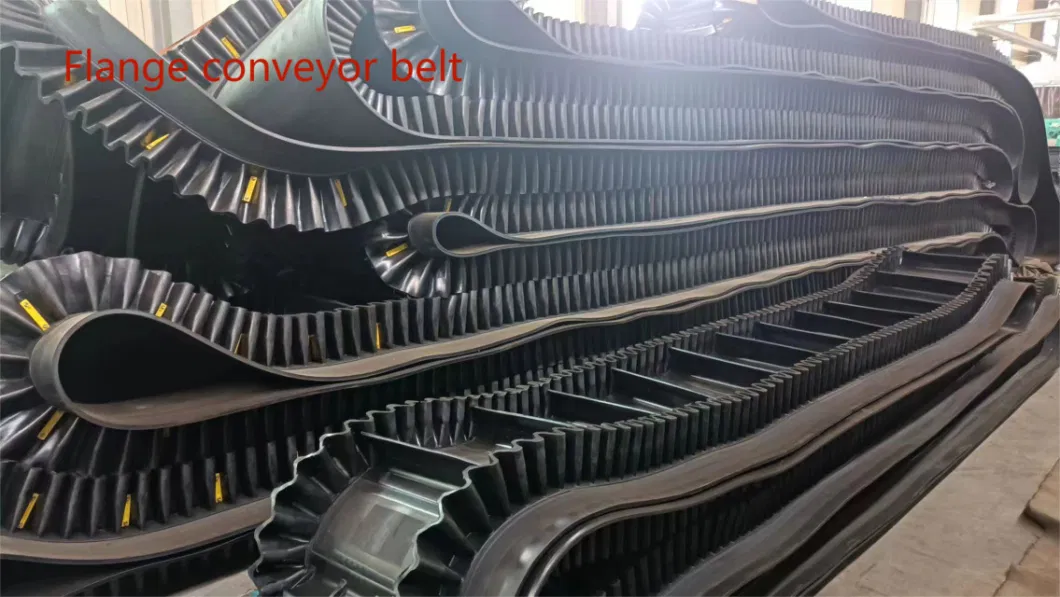
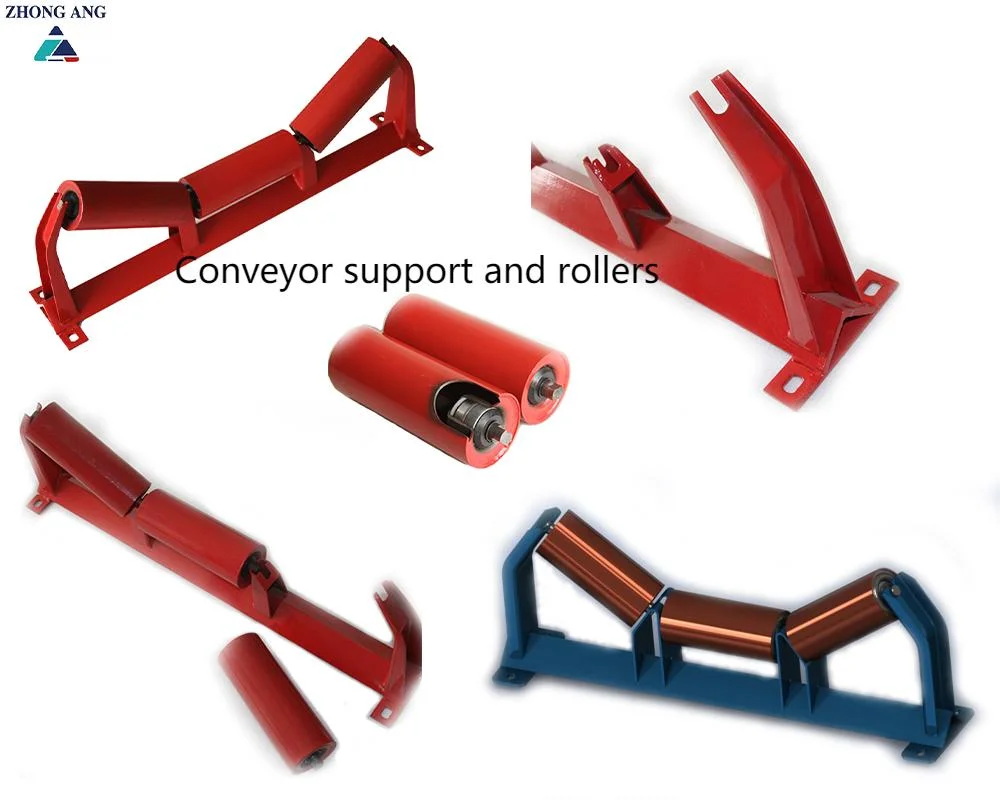
Product display
Operation and debugging
1, the fixed conveyor should be installed on a fixed basis according to the specified installation method. Before the mobile conveyor is officially run, the wheels should be wedged with triangular wood or braked with brakes. In order to avoid walking during the work, when there are multiple conveyors working in parallel, there should be a one-meter channel between the machine and the machine and the wall.
2. Before the conveyor is used, check whether the operating parts, tape buckle and bearing device are normal, and whether the protective equipment is complete. The tightness of the tape must be adjusted to the appropriate degree before starting.
3, the belt conveyor should be no-load start. Wait for normal operation before feeding. No feeding before driving. 4. When several conveyors run in series, they should start from the unloading end and start in sequence. After all the normal operation, can feed.
5, in the operation of the tape deviation phenomenon, should be stopped and adjusted, not forced to use, so as not to wear the edge and increase the load.
6, the working environment and the temperature of the material to be sent shall not be higher than 50ºC and lower than -10ºC. Materials with acid and alkaline oils and organic solvents shall not be transported.
7. No pedestrians or passengers are allowed on the conveyor belt.
8, before stopping, you must stop feeding, and so on the belt to discharge the material before stopping.
9, conveyor motor must be well insulated. Mobile conveyor cable do not pull and drag. The motor must be grounded reliably.
10. It is strictly prohibited to pull the belt by hand when the belt slips, so as to avoid accidents.
Cause of deviation
During use, if there is deviation, the following checks should be made to determine the cause and make adjustments. Conveyor belt deviation often check the parts and treatment methods are:
(1) Check the non-coincidence degree between the transverse center line of the roller and the longitudinal center line of the belt conveyor. If the non-coincidence value exceeds 3mm, it should be adjusted by using the long mounting holes on both sides of the idler set. The specific method is to which side of the conveyor belt, which side of the roller set moves forward in the direction of the conveyor belt, or the other side moves back.
(2) Check the deviation value of the two planes of the head and tail frame mounting bearing seats. If the deviation between the two planes is greater than 1mm, the two planes should be adjusted in the same plane. The adjustment method of the head drum is: if the conveyor belt runs off to the right side of the drum, the bearing seat on the right side of the drum should move forward or the left bearing seat should move back; If the conveyor belt deviates to the left side of the drum, the bearing seat on the left side of the drum should be moved forward or the right bearing seat should be moved back. The adjustment method of the tail drum is exactly the opposite of the head drum.
(3) Check the position of the material on the conveyor belt. The material is not centered on the cross section of the conveyor belt, which will cause the conveyor belt to run off. If the material goes to the right, the belt goes to the left, and vice versa. When used, the material should be centered as much as possible. In order to reduce or avoid such conveyor belt deviation, the baffle plate can be added to change the direction and position of the material.
Transport system maintenance brief
In order to prevent failure, the maintenance and random inspection of the conveyor chain are indispensable:
1. Give lubricating oil regularly;
2. Determination of chain elongation (determination of the total elongation of the tension part, judgment of the total length and elongation of the chain, determination of pitch);
3, spot check roller and track wear, deformation.


